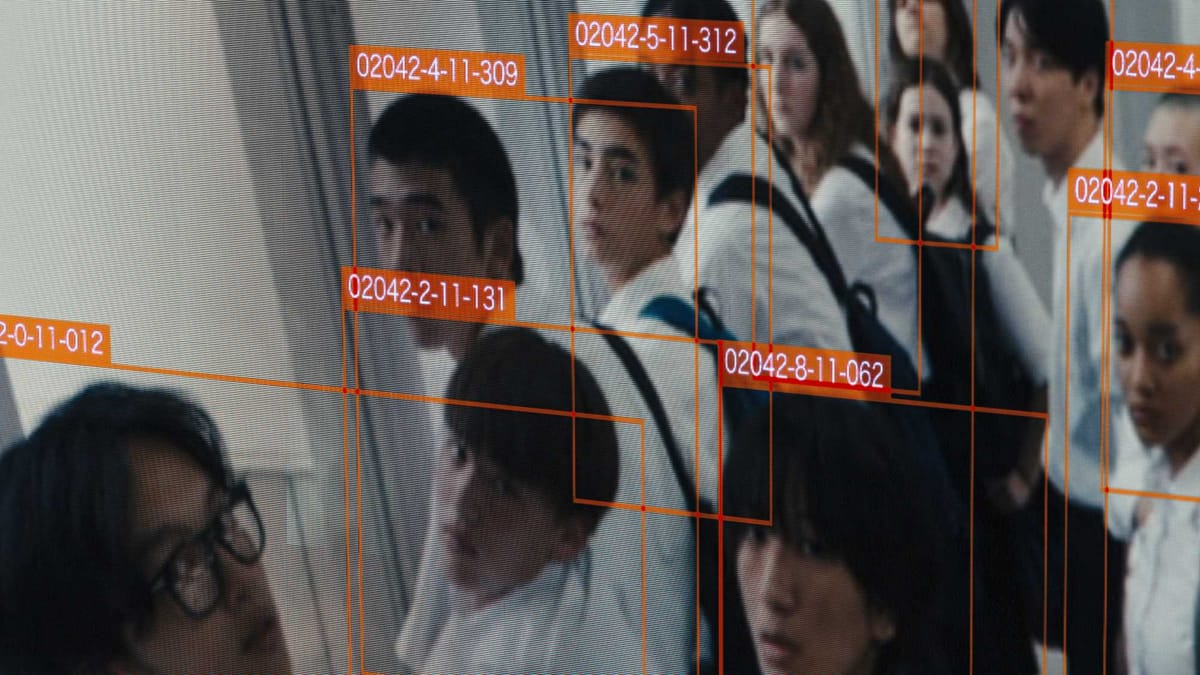NZIFF 2025 Craccum Coverage | Happyend
Our kids are cooked. Probably.

Neo Sora’s soaring sci-fi debut feature is a coming-of-age story set in an emerging techno-surveillance state. As a future digital technology teacher, I can tell you we’re really just one authoritarian government abusing emergency powers away from this nightmare. Tech like Happyend’s “Panopty” is waiting in the wings (cf. China’s social credit system).
While it would be alarming if police could ID you with their smartphone, who can’t say it would be convenient when you’re trying to get into Shads but left your license at home. Sora finds humour in these moments where technology ingeniously, ironically or unintentionally provides the means for rebellion among the students as they seek independence within the system.
As much as it explores the implications of technology, Happyend also explores the xenophobia in modern-day Japan, where students of various mixed or non-Japanese ancestry (China, Korea, Africa, Europe, etc.) are subject to a seemingly never-ending series of racial microaggressions from government officials. The synchronisation of blame for the shape of the economy and natural disasters on ethnic minorities invokes the scapegoating we’ve seen leading nations to dark and bloodied pathways time and time again.
I can’t quite pinpoint why, but something is unsettling about saying a “happy end” rather than a “happy ending”. It’s uncomfortably finite, absolute and mortal. This tension is played out in the bittersweetness of the film’s outlook of both hope and despair for the future. Tears that we, our children and future generations will seemingly have to get used to rolling through from time to time, like seismic waves. Will the future presented in Happyend come to pass, a once-in-a-century disaster? Or is it another false alarm? Either way, Sora seems to suggest we should prepare, protest and brace for impact regardless.
Beautifully filmed and minimalistic, Sora makes Tokyo feel empty, colossal, and skeletal, as if time and technology have cleaned its kaiju-sized bones. The score, shifting between techno, delicate synths, and piano, pays tribute to the cinematic legacy Sora draws from, such as Akira (1988). Composer Lia Ouyang Rusli nails the vibes, resulting in a touching homage where every track feels as if it came straight out of Sora’s late father’s vault (Ryuichi Sakamoto).





